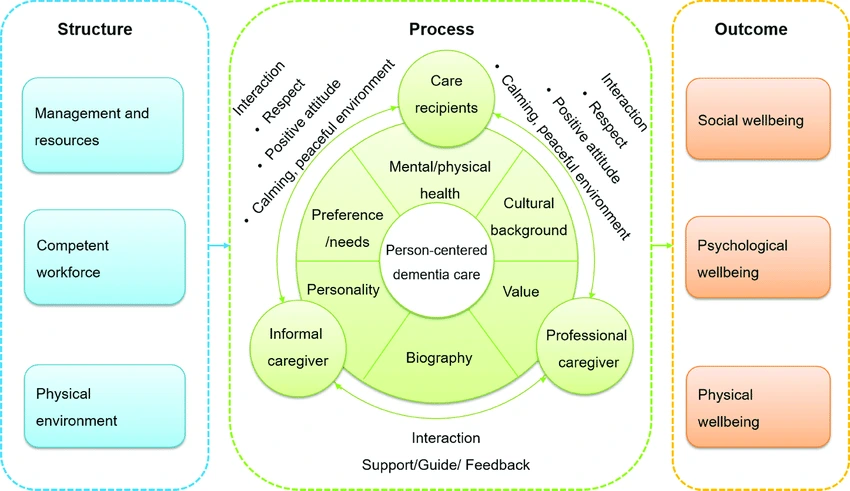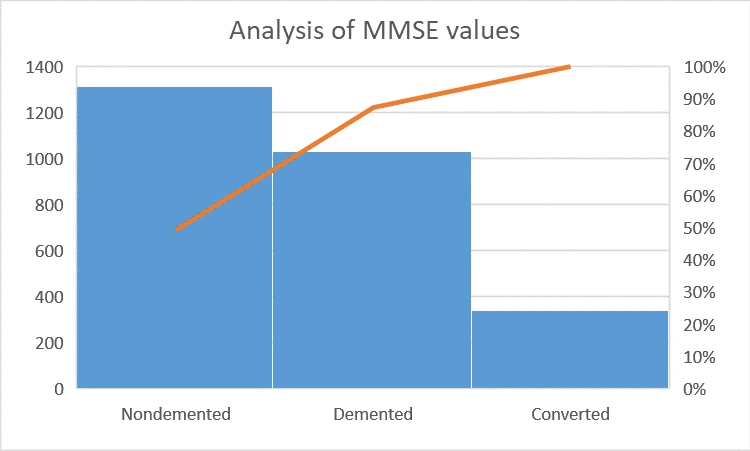+44 75754 30035 help@rapidassignmenthelp.co.uk
offer
🎁Special Offer 🎁 Discounts - Up to 55% OFF!
🎁Special Offer 🎁 Discounts - Up to 55% OFF!
Let Rapid Assignment Help simplify your academic challenges with professional online assignment help designed for your success in The Critical Role of Nursing in Dementia Care in the UK Assignment.
The analysis and investigation of the function of nursing in managing older patients suffering from dementia the essential to understanding there in the United Kingdom. This study helps to explore the role of nursing care in the case of older patients and their records to analyse it more briefly. In recent times, the cases of dementia have been increasing rapidly in nations which require efficient care and proper guidance to tackle the patients. In the United Kingdom, it has been shown that nurses are contributing to the promising role of managing patients, which will be presented in this study. The study of understanding the role of nursing care helps to understand how they implement their role.
The background of the review centers on the embracing requirement for a far-reaching role of the nurse part in controlling dementia within the remarkable setting of the UK. With An increasing number of cases and a rising number of dementia cases, the interest for particular attention is heightening. The frontline activists of the medical professionals or the nurses can play a vital role in providing effective management and maintenance of the family members of the patient with dementia (Galik et al. 2021). Having the capability of handling patients very effectively the thorough analysis and survey of their specific role and the obstacles which are experienced by the nurses are insufficient yet.

Figure 1: Dementia patient care approaches
The significance of this exploration originates from the critical need to address the complex and advancing complications related to dementia care in the United Kingdom, highlighting the significant job of medical helpers in its administration (Brooke, and Ojo, 2020). Understanding nurses' specific assistances, challenges, and opportunities becomes gradually important for improving patient outcomes as the dominance of dementia rises. This study means to examine and analyze the diverse parts of the medical caretaker's job, taking into interpretation the remarkable socio-social and medical care scene in the UK. By exploring the present status of dementia in the management, recognizing the lack of nursing practices, and knowing the effect of advancing methods, the examination looks to illuminate systems that advance the adequacy of nursing care.
The findings of the study help to gather information based on the care provided by the nurse in managing dementia patients. The findings of the results allow us to explore their effectiveness with the prominent records. The discussion of this topic also permits the analysis of dementia patients and the role of the supporting members in recovering the disease properly (Gibson et al. 2021). The results are collected from the pre-existing surveys on which the survey has already guided here to understand it more prominently. The results of the survey allow for the analysis and concentrate on the lack of research which has already been evaluated in the previous study.
The dataset is based on the information of the 100 people who have suffered from dementia and have not suffered from this is collected here to represent the evidence and enhance the understanding of the care of the medical professionals who have actively engaged in this.
Get assistance from our PROFESSIONAL ASSIGNMENT WRITERS to receive 100% assured AI-free and high-quality documents on time, ensuring an A+ grade in all subjects.

Figure 2: Analysis of MMSE diagnosis results of dementia patients
The graphical representation of the evidence of the people grouped as the dataset dementia, non-dementia, and the converted are chosen to compare with the factor of MMSE (Tuijt et al. 2021). For the dementia patient, the factor of MMSE plays a significant role. Here, the MMSE refers to the investigation of the mental state, which is used to assess the cognitive functions of the brain. This has been done as a screening method that provides a score after the screening examination. This score helps to understand the state of the cognitive development of the patients who have suffered. The values of MMSE are represented as high in patients with dementia compared to the non-dementia people of this evidence.
The graphical presentation displayed the dementia patients with the ASF or atlas scaling factor for the measurement of the capacity of the human brain. The factor of ASF is used to measure the capabilities of the function of the brain (Ploeg et al. 2020). Here the patients of dementia have scored in this evidence. The role of nursing care is effective in the recovery of the patient for this reason the results of ASF might be increased. The dementia patient has shown lower ASF values in the specific regions of the brain. Here, the non-dementia patient gives the higher result and the dementia patient has displayed the lower values of ASF.
The evidence of the measurement of eTIV factors in the case of dementia patients has been displayed in this graph (Gibson et al. 2020). The variable of etiv helps to measure the volume of the human skull,l which is required for the estimation of brain activity. This is an essential fact in the measurement of the brain activity of the dementia patient and shows lower values. Those people without dementia represent the higher values of etiv.
With our nursing assignment help, you can focus on mastering your clinical skills while we handle your complex theoretical assignments with ease.
The evidence of the CDR variables for the dementia patient helps to measure the volume of the skull that is appropriate for the understanding of any changes in the structure of the brain (May, and Scammell, 2020). The dementia patient has represented the higher values of the CDR here and the non-dementia people have lower values of the CDR as their function of the brain activity has been done properly. The values of CDR measure the volume of the skull arrangements and this results in the better function of the non-dementia people. Nursing care can be effective in this measurement of skull activity. This measurement can give a score that is varied from no damage to the skull to acute dementia (Taneichi, and Rokkaku, 2020). The proper medication given by the nurse cannot affect this variable for the patients.
The evidence collected by the analysis of these different variables enhances the understanding of nursing care in managing dementia patients.
According to the guidelines of NICE, it has been established that the age group of 40 to 64 years is largely impacted by this disease. Lifestyle activities including alcohol consumption, smoking, an unhealthy diet, and a lack of physical activity can increase the chances of diseases among this group of people (Hebditch et al. 2020). The diagnosis of dementia is very crucial for not enhancing the decline of function in the brain and those who need the proper medication with care can be suggested by medical professionals to tackle the severity of this issue. People who have suspected this issue have to get the proper treatment from a specialist to fight against with and recover from this. They should attain the support of the family members and the nursing profession which is required in the cognitive impairment.
The Critical Role of Nursing in Dementia Care in the UK Assignment highlights that nurses play a significant role worldwide in managing dementia patients. The diagnosis and treatment of dementia require various tests, such as ASF testing and MMSE examination. As discussed in the critical evidence section, analyzing these tests helps nurses accurately identify whether a person has dementia (Scerri et al. 2020). This research emphasizes that the proper conduct of diagnostic tests is vital for nurses to effectively carry out treatment procedures in dementia care.
The proper reviewing process of a wide variety of research studies has provided valuable evidence about the role and impacts of an MR delay on the diagnosis tests which are related to dementia identification. This particular graphical analysis has shown the development impacts of the MR delay process on the ASF diagnostic test of a dementia patient (Bamford et al. 2021). The delay in MR primarily denotes the delay process which is present in a scheduled scan and the actual time of any diagnostic examination. It can be properly analyzed with the help of this specific graph that the delay in the MR process has evolved dysfunction in the ASF test. It was found in this graph that the peak value is identified at 2500 and 3.3 scores of the patients.
This analytical figure mentioned in the above section of this research study includes the impacts of MR delay on the MMse test results of dementia patients (Hirt et al. 2021). With the help of this specific graphical examination, the delay process in the MMse diagnostic test has impacted negatively as the test values were not properly justified. This graph image illustrates that the values of the MMse scores were highest for the 0 to 500 range which is 80% of the total data.
The proper analysis process of these previously mentioned data has provided different types of information about the wrong management of the diagnosis process of dementia patients. It was identified that the MR delays were produced due to the wrong management of nurses at the time of diagnostic tests. Comprehensive training for nurse is necessary for person-centered and outcome-focused care for dementia patients. This integrates figuring out dementia side effects and movement, perceiving the person’s unique biography, regarding character, sexuality, and culture, and getting a handle on the necessities of both the individual and their family or guardians. The nursing staffs ought to be knowledgeable in the Act of mental capacity 2005 and the care Act of 2014. The training which can be conducted personally is required here and personal preparation and coaching ought to cover the association's dementia care model, adjusting correspondence styles, tending to unsettling or hostility, and limiting the utilization of antipsychotics and restrictions. Continuous criticism meetings and mediation encouragement mean to upgrade the quality of their care. Younger individuals with dementia and those who are still working receive special attention. Generally, the nursing care stresses customized, compassionate, and brilliant ways to deal with upgrade the prosperity of people living with dementia.
As per the guidelines and regulations of the NMC, which is the Nursing and Midwifery Council nursing professionals should not contain these types of mistakes during their work process (Walsh et al. 2022). The codes that are present in this NMC guidelines include various rules which are contained by the proper healthcare management approaches of nurses. It is stated in these guidelines that a nurse can't practice any type of work in a healthcare organization if they are not registered at NMC.
The NMC codes contain various information about the management process of dementia patient’s diagnoses and treatments (Smith et al. 2022). It was understood that the proper implementation of those processes and guidelines would be very effective for resolving the MR delay-related problems.
Conclusion
The Critical Role of Nursing in Dementia Care in the UK Assignment investigates the records of dementia patients to analyze the effectiveness of nursing care in their lives. By gathering data from both dementia and non-demented patients, the study provides a clearer understanding of nursing’s impact through critical analysis and graphical representation. The research highlights the importance of nurses in reducing the negative effects of dementia and emphasizes that proper nursing care, guided by NMC guidelines and supported by NICE recommendations, is essential for improving healthcare outcomes in dementia care.
Reference List
Journals
Introduction - Unit FM5.02 Organisational and Facilities Management Strategy Assignment Sample The term facilities...View and Download
Introduction: Growth and Reflection View this public health reflection sample to see academic quality at its best. With...View and Download
Introduction The introduction of the EBMT6002 Applied Research Project lays the foundation for examining a significant shift in...View and Download
Part 1: Critical Appraisal Critical appraisal examines how systematically and rigorously existing studies on telemedicine for...View and Download
1.0 Introduction: EEG and ERP Analysis of Children's Empathy Looking for an Assignment Helper? Our expert team provides...View and Download
Introduction In the context of business, marketing is a critical procedure of creating, communicating, and providing goods and...View and Download
